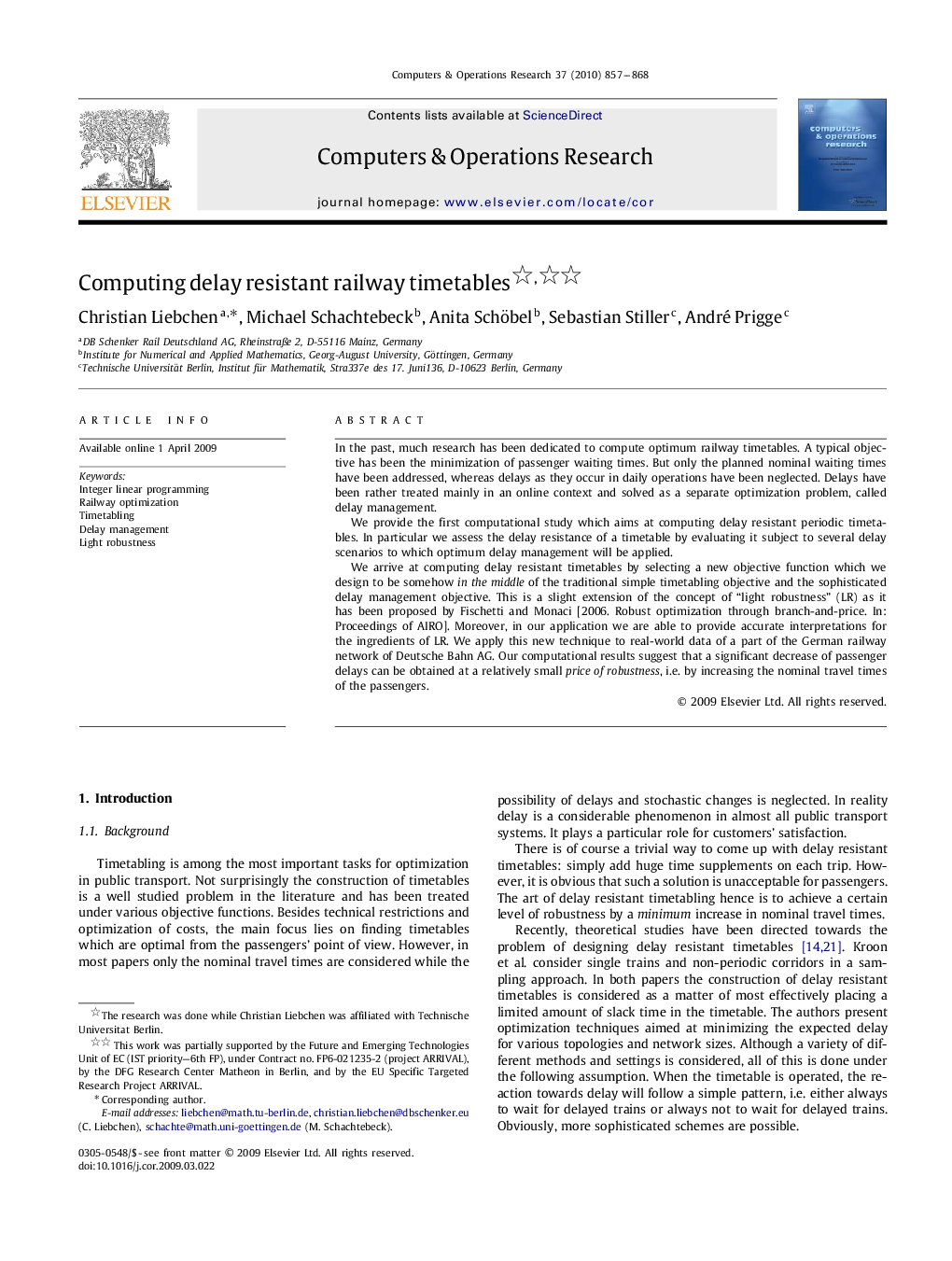| Article ID | Journal | Published Year | Pages | File Type |
|---|---|---|---|---|
| 475837 | Computers & Operations Research | 2010 | 12 Pages |
In the past, much research has been dedicated to compute optimum railway timetables. A typical objective has been the minimization of passenger waiting times. But only the planned nominal waiting times have been addressed, whereas delays as they occur in daily operations have been neglected. Delays have been rather treated mainly in an online context and solved as a separate optimization problem, called delay management.We provide the first computational study which aims at computing delay resistant periodic timetables. In particular we assess the delay resistance of a timetable by evaluating it subject to several delay scenarios to which optimum delay management will be applied.We arrive at computing delay resistant timetables by selecting a new objective function which we design to be somehow in the middle of the traditional simple timetabling objective and the sophisticated delay management objective. This is a slight extension of the concept of “light robustness” (LR) as it has been proposed by Fischetti and Monaci [2006. Robust optimization through branch-and-price. In: Proceedings of AIRO]. Moreover, in our application we are able to provide accurate interpretations for the ingredients of LR. We apply this new technique to real-world data of a part of the German railway network of Deutsche Bahn AG. Our computational results suggest that a significant decrease of passenger delays can be obtained at a relatively small price of robustness, i.e. by increasing the nominal travel times of the passengers.
